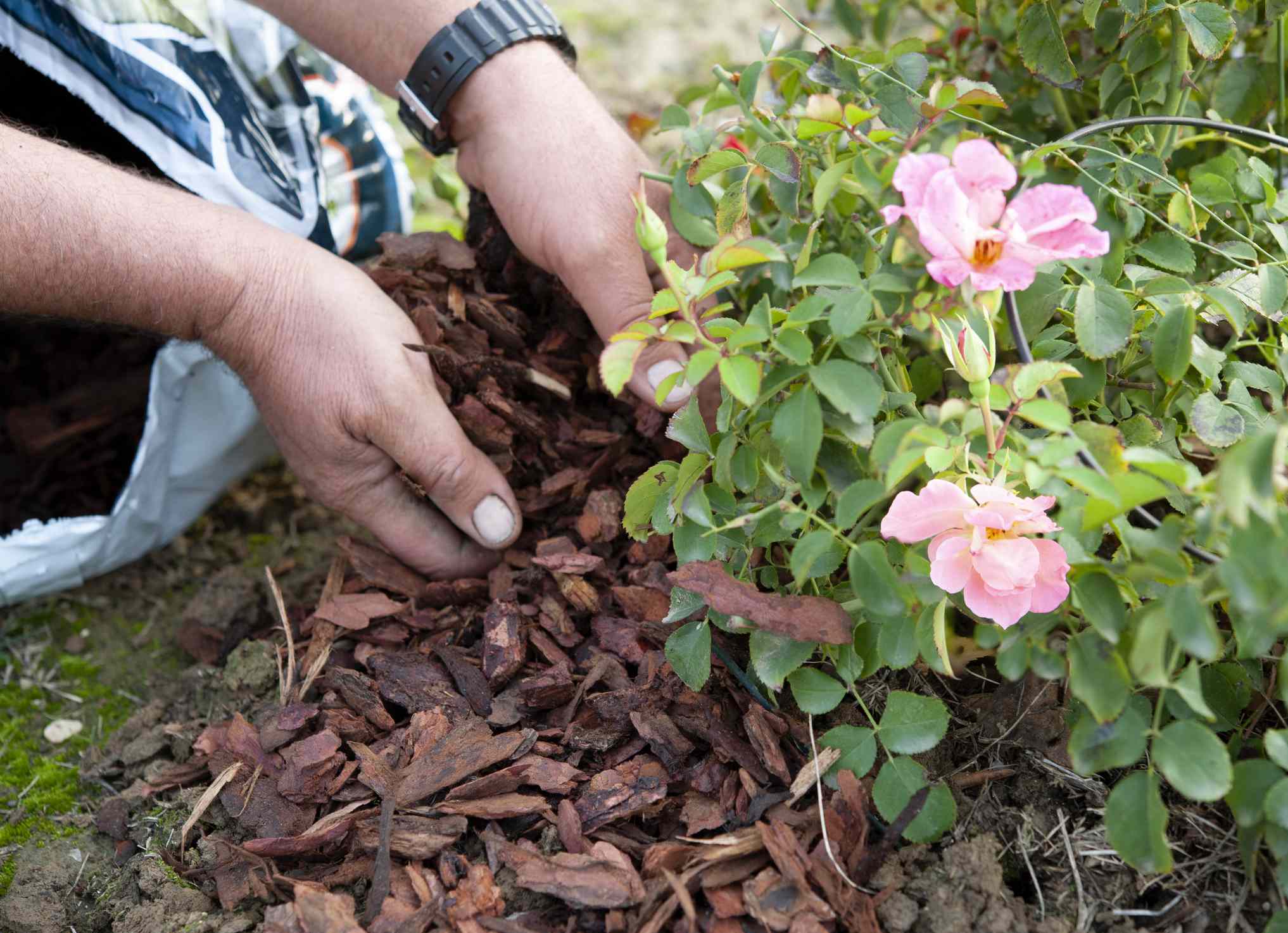:max_bytes(150000):strip_icc():format(jpeg)/GettyImages-1284747850-78cba7e528d4477d8a68690e68061efb.jpg)
Key points
- Experts highly recommend mulchic roses in winter.
- Mulch around the base isolating roots from damage to the freezing cycle.
- Cold areas need extra soil and mulch, while warmer surfaces require only a thin layer.
To enjoy the roses in the spring, you need to help them survive winter.
We talked with two gardening professionals, including rose experts – who confirmed that mulching in September is crucial to survive the roses to survive the winter.
Learn why mulchici and whether you should take sludge around the rose this September.
Meet the expert
- Tyler Francis Is the co-all and founding member of April and Ashley.
- Dawn Defe Is the heads of landscape and gardening on the landscape barn.
Will the rose in September help in the winter?
Freezing cycles – defrosting in the fall and winter are heavy on plants. Rose protection begins for months earlier in September.
“We recommend that our customers sludge their roses (for) winter,” says Tyler Francis, an expert rose and co-owner of April and Ashley.
The best time is after the first country of freezing, when you can call the soil and apply Mulch, says Francis. Including a mulch on flower beds, especially roses, is essential for additional protection.
Want more darts tips? Sign up for our free kindergartens Bulletin for our best tips for breeding, troubleshooting and more!
Does the mulches rose valuable or not?
Mulching roses are absolutely worth it, because this will help them survive in winter, Dawn Defeo, with landscape.
“The country becomes additional protection against freezing and thawing with mulching, and it also protects the roots to introduce around,” Defeo says.
Roses are protected from drying in cold wind. Mulch helps roses to keep moisture.
“The esteemed roses prone to freezing – especially a small lump in the database, which is sensitive to freezing,” Defeo explains. Mulching gives additional protection through that area.
As long as you use organic mulch, it will feed dirt around roses with nutrients. This helps roses to return strong next spring.
Zones where roses need mulchers
Since time is not predictable, it is important to protect your roses from damaging the freezing cycle. The amount of protection you should ensure will depend on your USDA benefit zone.
Tyler Francis explains how the confusion of cold hardness requires fat mulch, while warmer areas can need less Mulch:
Hardoss Hones 1 to 6
Add extra soil in the colder climate in the rose base. After that, cover the base with a thick layer of Mulch. This will protect roses against frost and provide them with a pleasant, isolated environment.
Hardness zones 7 to 13
Warm climate are not exposed to the same sharp winter challenges as other areas. Despite this, you should still apply a layer of mulch from 2 to 3 inch muzzles around the rose base. This will protect against any potential cold slags.
How Mulch Roses for Winter
Dawn Defo explains how to milk my roses to help them survive winter:
- Choose the right time: Mulch roses immediately after the first hard frost. If you don’t wait for that, the plant remains warm and there is no indicator that it should take a nap for winter.
- Use good mulch: Use quality organic mulch such as bark, straw, pine needles, compost or shredded sheets. Keep it lightly and avoid moist, heavy things like fresh manure.
- Densely piling up mulch: Distribute 4 to 6 inches of mulches around the rose base, especially for vaccinated roses.
- Protect Mulch: In wind areas, install a wired cage via Mulch to keep it in place. Take a cage in the spring, then expel some mulch. This allows new growth to be passed, and helps roses to avoid mold.
6 Tips for Insurance Roses Survive Winter
Gardening Expert Tyler Francis provides tips for mulching that roses are safely brought through the winter:
- Declutter Garden: Rake dead leaves or debris surrounding roses. This prevents pests and diseases like black disputes, plus, will make it easier for spring cleaning.
- Move Untete Roses in: Rose used in favor of mobility. Move your roses in a shed or unharmed garage before winter.
- Lightly water roses: Keep roses hydrated during the winter but only lightly. Never let the soil dry completely.
- Arms and feed early: The end of the summer or early fall is the last time you should collapse or fertilize roses. “Smart, feeding, and death, before the winter, like the night is to give you a candy with a child at night: Non-wished energy broke,” Francis says.
- Cover roses: In extremely cold climates cover roses with a burlap to prevent the wind out of the branch. Use rose cones to isolate the base of your roses and prevent the growth of molds and bacteria.
- Keep snow in place: Snow is not the enemy of your roses. Consider snow as a blanket that isolating them and helps them keep moisture.
